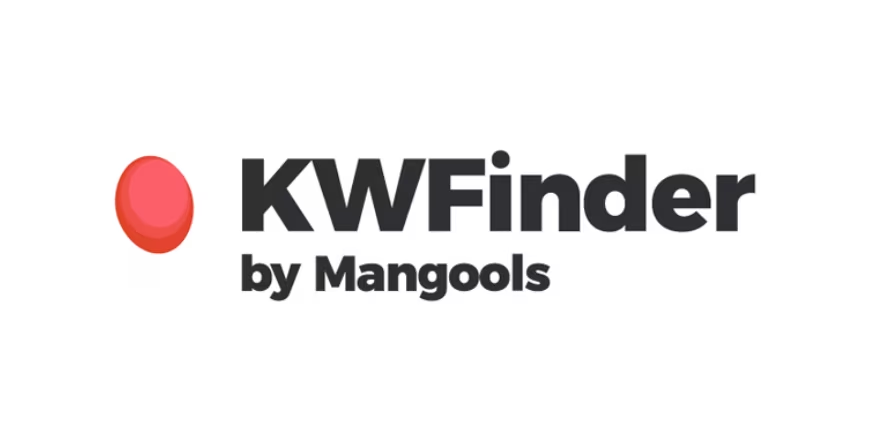Best Semrush Alternatives
Discover 7 powerful SEMrush alternatives for keyword research, site audits, and competitor analysis. Optimize your SEO without spending a dime.


SEMrush is undoubtedly one of the most robust SEO tools in the industry, but its pricing—starting at nearly $130/month—can be limiting for individual creators, small businesses, and early-stage startups. Fortunately, you don’t need a premium subscription to do great SEO.
If you're looking for ways to conduct keyword research, competitor analysis, and site audits without breaking the bank, you're in the right place. In this guide, we'll explore the 7 best free SEMrush alternatives that provide real value without charging a dime.
These tools, when used together, can help you build and grow a strong SEO strategy using accurate data, actionable insights, and smart planning—all for free.
What is SEMrush and What are Its Key Features?
SEMrush is a leading all-in-one digital marketing platform used by SEO professionals, content marketers, and agencies to improve online visibility. Originally focused on keyword research and competitive analysis, it has since evolved into a robust suite covering every major area of SEO and digital marketing.
With over 10 million users worldwide, SEMrush is known for its in-depth data, rich insights, and multi-functional capabilities. It offers tools for search engine optimization, pay-per-click (PPC) advertising, social media tracking, and content marketing—all within a single dashboard.
Core Features of SEMrush Include
- Keyword Research: Discover new keyword opportunities with volume, difficulty, trends, and SERP features.
- Domain & Competitor Analysis: Analyze your competitors' traffic sources, keywords, and backlinks to identify gaps and opportunities.
- Site Audit: Crawl your website to detect technical SEO issues like crawl errors, broken links, duplicate content, or slow-loading pages.
- Backlink Analytics: Monitor backlinks, referring domains, and link toxicity to maintain a healthy link profile.
- Position Tracking: Track keyword rankings across locations and devices to measure SEO performance over time.
- Content Optimization Tools: Use the SEO Content Template and Writing Assistant to create content that ranks better in search.
- PPC Research: Analyze Google Ads campaigns from competitors and get suggestions for your own paid search strategy.
- Social Media Toolkit: Schedule posts, analyze engagement, and monitor brand mentions across key platforms.
While SEMrush is undoubtedly powerful, its pricing may not be accessible for everyone—especially when you’re just starting out. That’s why exploring free alternatives can be a smart move until you’re ready for the upgrade.
Top 7 Free SEMrush Alternatives to Power Your SEO Strategy
You don’t need to spend a fortune to get meaningful SEO insights. These free tools offer powerful features—from keyword research and site audits to competitor analysis—that can help you build a solid optimization strategy. Whether you're a beginner or an experienced marketer working with a tight budget, the following SEMrush alternatives can get the job done without the hefty price tag.
1. Google Search Console

Google Search Console is an essential tool for any website owner. It's free, easy to set up, and gives you access to real data from Google about how your site is performing in search results.
You can monitor which queries bring traffic, which pages are ranking, how your site appears in search, and where improvements are needed. It also provides valuable technical SEO insights such as indexing status, mobile usability issues, and Core Web Vitals.
For example, if you notice a page has a high number of impressions but low clicks, it may be time to revise your title or meta description. Or if certain pages aren’t being indexed, you’ll get specific reasons so you can fix them right away.
Best for: Technical SEO, performance tracking, and identifying indexing or crawl errors.
2. Google Keyword Planner

Originally designed for PPC campaigns, Google Keyword Planner has become a go-to resource for keyword research in SEO. It’s free to use with a Google Ads account and provides keyword ideas, search volume ranges, and competitive metrics.
When you enter a keyword or website, it generates hundreds of related terms and estimates their average monthly searches, making it a useful alternative to SEMrush for brainstorming content and targeting opportunities.
Although precise data is available only to advertisers with active campaigns, even the free version provides reliable insights into keyword demand and competition.
Best for: Keyword research based on actual Google data, especially for content planning.
3. Ubersuggest

Ubersuggest by Neil Patel offers one of the most generous free tiers in the SEO tool world. You get three free searches per day, and each search comes with robust keyword metrics, including:
- Search volume
- SEO difficulty
- Paid difficulty
- CPC
- Content ideas
- Competitor domains
- Backlink profile
Its clean, user-friendly dashboard makes it easy for beginners to navigate, and its features cover nearly every aspect of on-page and off-page SEO. You can even conduct site audits and check for technical issues like broken links or slow-loading pages.
If you’re just starting with SEO and want an all-in-one tool that doesn’t overwhelm you, Ubersuggest is a fantastic free option.
Best for: Keyword discovery, content topic ideas, basic site audits, and backlink overviews.
4. KWFinder by Mangools

KWFinder is part of the Mangools suite and known for its clean UI and reliable keyword difficulty scores. While it’s not entirely free, Mangools offers a limited-access trial version that gives you a strong taste of its capabilities.
You can search keywords and see their monthly volume, CPC, difficulty score, and even current SERP rankings. One particularly useful feature is how it identifies search intent—telling you whether users are looking to buy, learn, or compare.
What makes KWFinder stand out is its user experience. You don’t need to be a technical expert to understand the insights, and it’s an ideal tool for anyone serious about building targeted content that ranks.
Best for: Focused keyword research and SERP analysis, especially for blog and content strategy.
5. SpyFu

SpyFu offers a powerful peek into your competitors’ SEO and PPC strategies. While it’s largely a paid platform, the free version allows you to enter any domain and see:
- Their top-performing organic keywords
- Estimated monthly clicks and value
- Most visible pages in search
- A sample of their backlink profile
- Ad history and budget (for paid search)
This is incredibly useful if you want to reverse-engineer what’s working for others in your niche. If a competitor is ranking well for a keyword you hadn’t considered, SpyFu helps you uncover it.
For agencies or freelancers doing client work, even the free version can give enough competitive insight to start making data-informed decisions.
Best for: Competitor keyword research, traffic estimation, and SEO gap analysis.
6. Ahrefs Webmaster Tools

Ahrefs is one of the most respected names in SEO, and while their full platform is premium, Ahrefs Webmaster Tools is completely free for site owners who verify their domain.
You get access to:
- Health score and technical SEO audit
- Internal linking issues
- Backlink overview
- Organic keyword performance
- Top pages by traffic
This is especially helpful if you want to monitor and improve your SEO health without paying hundreds per month. While it doesn’t include features like rank tracking or extensive competitor analysis, it’s more than enough for improving your own site.
Best for: Site health monitoring, backlink checks, and fixing technical SEO issues.
7. AnswerThePublic

AnswerThePublic is an excellent tool for content creators and bloggers. It focuses on uncovering long-tail keyword ideas in the form of real user questions and phrases pulled from search engines.
You enter a seed keyword like "SEO tools" and receive visual maps of questions like:
- What SEO tools are free?
- Why use SEO tools?
- Which SEO tools are best?
This data is invaluable for developing blog topics, FAQ sections, product descriptions, or YouTube videos. The free plan offers a limited number of searches per day, but it's perfect for occasional content planning sessions.
Best for: Finding question-based keywords and writing content that directly answers user intent.
Why Consider Alternatives to Semrush?
Semrush stands as one of the most powerful SEO tools on the market. It offers over 55 features, covering everything from keyword research to content marketing, PPC, and even social media management. Big brands like Tesla and Amazon trust it for their digital growth. But, just because Semrush is popular doesn’t mean it’s perfect for everyone. Many users look for “Semrush alternatives” when they hit certain roadblocks, whether it’s pricing, feature overload, or specific needs like YouTube SEO or affordable plans for small businesses.
Limitations of Semrush
- High Pricing: Starts around $130/month, which can be costly for startups and solo marketers.
- Complex Interface: Overwhelming for beginners due to many features and menus.
- Extra Costs: Additional fees for more users, historical data, and advanced reports.
- Traffic Data Accuracy: Sometimes less accurate compared to Google Analytics or other tools.
- Limited YouTube SEO: Not the best for video platform-specific keyword research and analytics.
- Internal Link Analysis: Less detailed compared to competitors like Ahrefs.
Benefits of Exploring Other Tools
- Cost-Effective: Many alternatives offer free plans or lower pricing options.
- User-Friendly: Simpler interfaces tailored for beginners or specific SEO tasks.
- Specialized Features: Some tools focus on backlink analysis, YouTube SEO, or local SEO.
- Flexible Plans: Pay only for the features you need, ideal for small businesses.
- Better Support for Niche Needs: Tools designed for YouTube, local SEO, or content optimization.
- Trial Options: Free trials or free tiers let you test before committing financially.
When Should You Consider a Paid Tool Like SEMrush?
Free tools can get you started and help you grow, but eventually, you may hit certain limitations. That’s when it becomes worth considering a paid solution like SEMrush, Ahrefs, or Moz Pro. These platforms offer advanced features and data at a depth that most free tools can’t match.
Here are signs you're ready to upgrade:
1. You’re Managing Multiple Websites or Clients
If you’re working on more than one site—either for your own business, clients, or different projects—you’ll need detailed reports, streamlined dashboards, and efficient tracking systems. Paid tools allow you to manage all properties under one roof and generate professional reports for stakeholders or clients.
2. You Need Daily Rank Tracking and Keyword Monitoring at Scale
Free tools often limit how often you can check rankings or how many keywords you can track. If you're running a serious content strategy or SEO campaign, daily updates, historical trend lines, and keyword grouping become crucial. Paid tools like SEMrush offer automated tracking for thousands of keywords with location and device-based segmentation.
3. You Want Advanced Features Like Local SEO or Content Gap Analysis
Tools like SEMrush provide features such as local keyword tracking (based on city/ZIP), brand monitoring, topic clustering, and content gap analysis. These capabilities are essential if you're optimizing for competitive markets or specific geographic regions, and they go far beyond what free tools offer.
4. You Run an Agency or Offer SEO as a Service
When you're managing SEO for others, your workflow needs to be fast, reliable, and measurable. Paid SEO platforms allow for collaborative user access, white-label reports, automated auditing, and campaign management—saving time and impressing clients with deeper insights.
How to Choose the Right Semrush Alternative for Your Needs
Choosing the best Semrush alternative can feel tricky, but focusing on a few key areas makes it simple. Here’s how to pick the right SEO tool that fits your needs and budget.
Consider Your Budget and Pricing
Semrush pricing starts around $120/month, which can be steep for many. If you want a cheaper Semrush alternative, options like SE Ranking, Ubersuggest, and Mangools offer plans from $29 to $52 per month. Many also provide free trials or free versions, so test before you buy. Always pick a tool that fits your budget without compromising essential features.
Evaluate Features and Functionality
Identify the features you need most. Ahrefs excels in backlink analysis and competitor research. SE Ranking offers an all-in-one SEO toolkit with keyword tracking and site audits. Moz Pro is great for beginners with easy keyword research and audits. SpyFu focuses on competitor and PPC insights. For YouTube SEO, look for tools supporting video keyword research. Agencies should prioritize white-label reporting and multi-user access.
User Interface and Experience
A clean, intuitive interface boosts productivity. Ubersuggest and Mangools are beginner-friendly with simple dashboards. Ahrefs offers depth but has a steeper learning curve. SE Ranking and Moz Pro balance ease of use with powerful features. Agencies may prefer Raven Tools or SEO PowerSuite for managing multiple projects. Always try free trials to see what feels right.
Customer Support and Reviews
Good support saves time. SE Ranking, Moz Pro, and Ahrefs have strong customer service and helpful resources. Check user reviews on G2 or Reddit (“semrush alternatives reddit”) for honest feedback. This helps you avoid issues and pick a reliable tool.
Tips to Get the Most Out of Free SEMrush Alternatives
Before diving into premium platforms, it’s smart to master the free tools available. They offer incredible value when used strategically—and when combined, they can form a complete, effective SEO toolkit.
1. Combine Multiple Tools for Full Coverage
No single free tool offers everything. But by pairing tools like Google Search Console for performance tracking, Ubersuggest for keyword research, Siteliner for site audits, and SpyFu for competitor insights, you can cover nearly every SEO need without spending a cent.
For example, use Google Keyword Planner to get search volume and then use AnswerThePublic to find question-based variations you can target in blog posts.
2. Always Focus on Search Intent
It’s easy to chase high-volume keywords, but ranking well only matters if the keyword matches what your target audience truly wants. Tools like KWFinder and Google Trends can help you understand whether a keyword reflects informational, transactional, or navigational intent. Focus on keywords that solve problems, answer questions, or lead to conversions.
3. Measure Your Progress
Make Google Search Console your best friend. It tells you what’s working—what pages are getting clicks, which queries are improving, and where you might need to optimize. If your rankings improve or impressions rise after using a specific tool or strategy, you’ll know it’s working.
Track progress regularly, and don’t just rely on intuition—let the data guide your decisions.
4. Don’t Get Hung Up on Volume Alone
High-volume keywords are often highly competitive. Instead, prioritize long-tail keywords (e.g., “best CRM for small e-commerce businesses”) which are more specific, have clearer intent, and are easier to rank for. Free tools like Ubersuggest or Moz Keyword Explorer can help identify long-tail terms with lower difficulty but strong conversion potential.
5. Keep Learning and Leveraging Free Education
Many free tools offer excellent learning resources—blogs, webinars, tutorials, and case studies. Platforms like Ahrefs, Moz, and Google regularly update their documentation and SEO guides. Staying informed not only helps you use the tools better, but it also ensures your strategy aligns with the latest search algorithm updates.
Conclusion
Choosing the right Semrush alternative is all about finding a tool that fits your unique SEO needs, budget, and workflow. Whether you’re a beginner looking for simple and affordable options like Ubersuggest or Mangools, or a seasoned pro needing deep backlink analysis and competitor insights from Ahrefs or SE Ranking, there’s a perfect fit for you.
Remember to weigh features, pricing, user experience, and customer support before making your decision. Testing free trials and reading real user reviews can save you time and money. With the right Semrush alternative, you can confidently boost your organic traffic, track your rankings, and stay ahead in the competitive digital landscape-all without stretching your budget. Start exploring today and take your SEO strategy to the next level!
FAQs on Best Semrush Alternatives
What is the best alternative to Semrush?
The best alternative to Semrush depends on your needs. For comprehensive SEO tools, Ahrefs is often considered a top choice due to its strong backlink analysis and keyword research features. For a more budget-friendly option, Ubersuggest is also a great alternative, especially for beginners.
Who are the competitors of Semrush?
Some of Semrush's main competitors include Ahrefs, Moz Pro, Ubersuggest, SE Ranking, Spyfu, SimilarWeb, and SEO PowerSuite. Each offers different strengths, with tools ranging from keyword research to backlink analysis and site audits.
Why is Semrush so expensive?
Semrush can be expensive due to its comprehensive suite of SEO tools, which includes keyword research, backlink analysis, competitor analysis, site audits, and more. Its pricing reflects the range of features and the depth of data it provides.
Which SEO tool is best?
The best SEO tool depends on your requirements. Ahrefs is great for backlink analysis, Semrush offers a full suite of tools for SEO, Ubersuggest is excellent for budget-conscious users, and Moz Pro is fantastic for beginners looking for ease of use and effective keyword research.
Is Google Analytics better than Semrush?
Google Analytics is excellent for tracking website traffic and user behavior, but it does not offer the in-depth SEO tools that Semrush provides, such as keyword research, backlink analysis, and competitor insights. Semrush is more comprehensive for SEO-specific tasks.
Is SimilarWeb better than Semrush?
SimilarWeb is more focused on providing traffic insights, competitor analysis, and market research, while Semrush offers a broader range of SEO tools. If you're looking for detailed SEO features like keyword research and site audits, Semrush may be a better choice, but SimilarWeb excels in traffic analysis.
Is there a free version of Semrush?
Semrush offers a free trial with limited access to its features, but there is no completely free version. The free trial allows users to explore some of the tools, but to fully access Semrush's offerings, a paid plan is required.
Are there free alternatives to Semrush?
Yes, there are several free alternatives to Semrush. Ubersuggest offers keyword research, site audits, and competitive analysis. Moz Pro provides limited free access to keyword research and audits. Google Search Console offers insights into your website’s performance and technical issues. AnswerThePublic helps with discovering search queries and content ideas. While these tools may not match Semrush in features, they are great for businesses seeking basic SEO insights without the cost.
Launch your dropshipping business now!
Start free trialRelated blogs

Best Time to Post on Instagram on Monday
Don’t know when is the best time to post on Instagram on Monday? We’ll tell you all about the best windows. Check out this guide.

Best Freepik Alternatives
Do you need better Freepik alternatives for design or marketing projects? Our list of the top Freepik alternatives in 2025 has got you covered!

Top 12 Skills for Entrepreneurs in Today's Times
Are you considering becoming an entrepreneur in 2025, but don’t know what it takes? Here’s a roundup of the top twelve skills for entrepreneurs today!

































